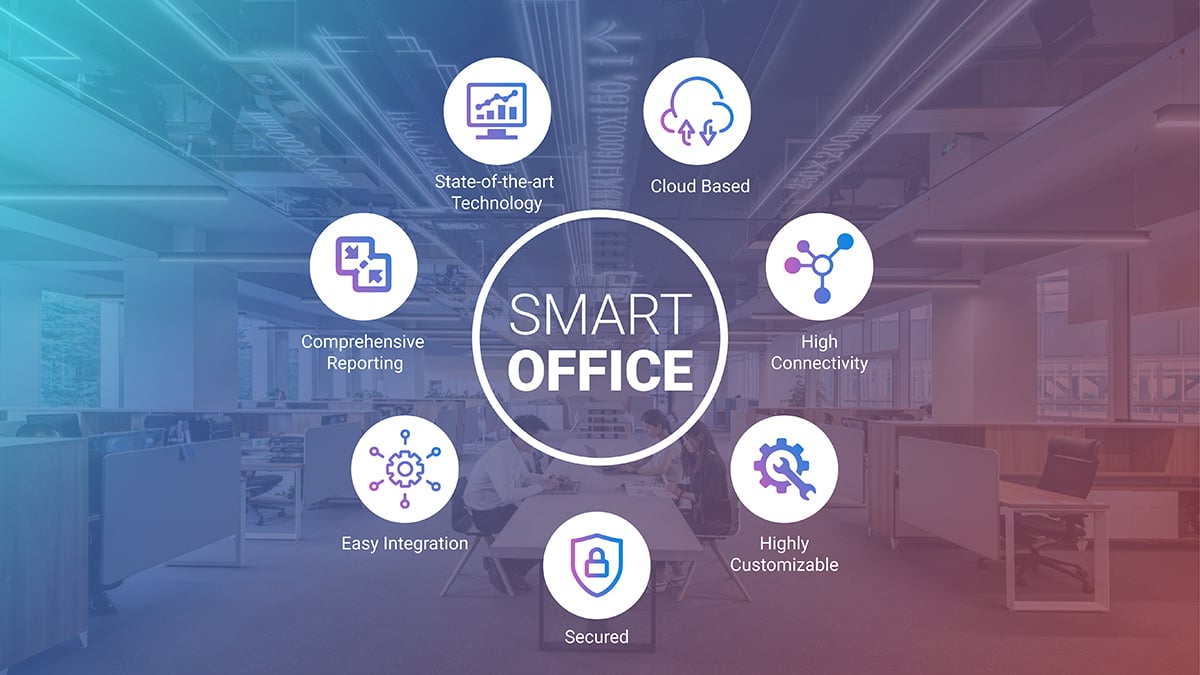Smart construction methods revolutionize the industry with advanced technologies and sustainable practices, enhancing efficiency and productivity on construction sites. As we delve into the realm of smart construction methods, we uncover a world of innovation and progress that shapes the future of construction projects.
From implementing cutting-edge technologies to embracing eco-friendly practices, smart construction methods pave the way for a more sustainable and cost-effective approach to building. Let’s explore the key aspects of this transformative trend in the construction sector.
Overview of Smart Construction Methods

Smart construction methods refer to the integration of advanced technologies, innovative processes, and data-driven solutions to enhance efficiency, safety, and sustainability in the construction industry. These methods revolutionize traditional approaches by leveraging automation, artificial intelligence, and real-time monitoring to streamline operations and optimize resource utilization.
Technologies and Tools in Smart Construction Methods
- Building Information Modeling (BIM): BIM is a 3D modeling technology that enables collaborative planning, design, and construction processes, improving project visualization and coordination.
- Internet of Things (IoT): IoT devices and sensors collect real-time data on equipment performance, worker safety, and environmental conditions, enhancing decision-making and predictive maintenance.
- Drones and UAVs: Drones are used for aerial surveys, site inspections, and progress monitoring, providing accurate and timely data for project management and quality control.
- Augmented Reality (AR) and Virtual Reality (VR): AR and VR applications allow for immersive project visualization, training simulations, and on-site guidance, improving construction accuracy and efficiency.
Benefits of Smart Construction Methods
Smart construction methods offer a wide range of benefits that can significantly improve the efficiency, productivity, cost-effectiveness, and sustainability of construction projects. By incorporating innovative technologies and practices, these methods revolutionize the traditional construction industry.
Improved Efficiency and Productivity
Smart construction methods streamline various processes, automate repetitive tasks, and optimize resource allocation. This leads to increased efficiency and productivity on construction sites, allowing projects to be completed faster and with higher quality outcomes. For example, the use of Building Information Modeling (BIM) software enables better coordination among different teams, reduces errors, and enhances communication throughout the project lifecycle.
Cost Savings, Smart construction methods
Implementing smart construction methods can result in significant cost savings for construction companies. By utilizing advanced technologies like drones, robotics, and prefabrication, companies can reduce labor costs, minimize material waste, and enhance overall project budget management. Additionally, the improved efficiency mentioned earlier also contributes to cost savings by reducing project delays and associated expenses.
Sustainability
Smart construction methods play a vital role in promoting sustainability in the construction industry. By incorporating eco-friendly materials, energy-efficient systems, and waste reduction strategies, these methods help minimize the environmental impact of construction projects. Furthermore, the use of sustainable practices can lead to certifications like LEED (Leadership in Energy and Environmental Design), showcasing a commitment to environmental responsibility and long-term resource conservation.
Technologies Driving Smart Construction
The construction industry is being revolutionized by various cutting-edge technologies that are shaping the future of smart construction methods. These technologies play a crucial role in improving efficiency, safety, and sustainability in construction projects.
Internet of Things (IoT)
IoT involves connecting various devices and sensors to gather and exchange data, enabling real-time monitoring and control of construction processes. For example, IoT can be used to track equipment usage, monitor structural health, and optimize energy consumption on construction sites.
Artificial Intelligence (AI)
AI technologies such as machine learning and predictive analytics are being used in smart construction to enhance decision-making, automate tasks, and improve project outcomes. AI can analyze complex data sets to identify patterns, predict potential issues, and optimize construction schedules.
Drones
Drones are increasingly being utilized in construction projects for site surveying, progress monitoring, and safety inspections. They provide aerial views of construction sites, collect data quickly and accurately, and improve overall project management efficiency.
Augmented Reality (AR) and Virtual Reality (VR)
AR and VR technologies are transforming the way construction plans are visualized, allowing stakeholders to experience virtual models of buildings and structures before they are built. These technologies help in detecting design flaws, facilitating collaboration, and enhancing communication among project teams.
Building Information Modeling (BIM)
BIM is a digital representation of a building’s physical and functional characteristics, which enables architects, engineers, and contractors to collaborate effectively throughout the project lifecycle. BIM improves coordination, reduces errors, and enhances project efficiency.
Robotics
Robots are being used in construction for tasks such as bricklaying, welding, and demolition, increasing productivity and safety on construction sites. These robotic systems can work autonomously or collaborate with human workers to streamline construction processes.
3D Printing
3D printing technology is revolutionizing construction by enabling the rapid prototyping of building components and structures. This technology reduces material waste, speeds up construction timelines, and allows for the creation of complex architectural designs with precision.
Sustainable Practices in Smart Construction
In modern construction projects, the importance of sustainability cannot be overstated. With the increasing awareness of environmental issues, it has become crucial for construction companies to adopt eco-friendly practices.
Smart construction methods play a significant role in promoting sustainability in the construction industry. By incorporating innovative technologies and strategies, these methods aim to reduce the negative impact on the environment while improving efficiency and cost-effectiveness.
Examples of Sustainable Practices in Smart Construction
- Usage of sustainable materials such as recycled steel, bamboo, and reclaimed wood to reduce the carbon footprint of construction projects.
- Integration of energy-efficient designs like green roofs, solar panels, and passive heating and cooling systems to minimize energy consumption and reduce greenhouse gas emissions.
- Implementation of waste reduction strategies such as onsite recycling, modular construction techniques, and digital planning tools to minimize construction waste and promote a circular economy.
Challenges and Limitations of Smart Construction Methods
Smart construction methods have revolutionized the industry, but they are not without their challenges and limitations. These obstacles can hinder the implementation and widespread adoption of these innovative practices. However, with the right strategies and approaches, these challenges can be overcome to further enhance the efficiency and sustainability of construction projects.
Obstacles Faced in Implementing Smart Construction Methods
One of the primary obstacles faced in implementing smart construction methods is the initial cost involved in adopting new technologies and practices. Many companies may be hesitant to invest in these advancements due to concerns about return on investment and budget constraints.
Another challenge is the lack of skilled labor with expertise in smart construction technologies. Training existing workers or hiring new talent can be a time-consuming and costly process, slowing down the transition to smart construction practices.
Potential Limitations in Scalability and Adoption
Scalability can be a limitation for smart construction methods, especially when it comes to large-scale projects. Integrating smart technologies across complex construction sites and managing data from multiple sources can be a daunting task, affecting the scalability of these methods.
Moreover, the industry’s traditional mindset and resistance to change can hinder the widespread adoption of smart construction practices. Convincing stakeholders to embrace new technologies and processes requires effective communication and a clear demonstration of the benefits.
Addressing Challenges for Improved Smart Construction Practices
To overcome these challenges, it is essential to create awareness and educate industry professionals about the advantages of smart construction methods. Providing training programs and resources can help bridge the skills gap and empower workers to leverage new technologies effectively.
Collaboration among stakeholders, including contractors, architects, engineers, and technology providers, is crucial for the successful implementation of smart construction practices. By working together and sharing best practices, the industry can drive innovation and overcome obstacles to adoption.
Commonly Asked Questions
What are the main advantages of implementing smart construction methods?
Smart construction methods improve efficiency, productivity, and cost savings on construction sites, leading to more sustainable projects.
What technologies are driving smart construction practices?
Key technologies such as IoT, AI, drones, and other innovations are revolutionizing the construction industry by enhancing processes and efficiency.
How do smart construction methods promote eco-friendly practices?
Smart construction methods incorporate sustainable materials, energy-efficient designs, and waste reduction strategies to minimize environmental impact.
What are some challenges faced in implementing smart construction methods?
Obstacles include scalability issues and adoption challenges within the industry, which can be addressed through innovation and collaboration.






